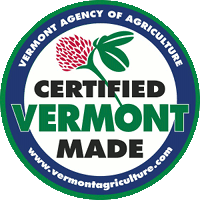Syrup, Cheese, and Environmental Lawyers: Made in Vermont
Earlier this month we blogged about Vermont Law School’s release of its inaugural “Top Ten Environmental Watch List.” This past weekend The Burlington Free Press took note of both the local and global impact of Vermont Law School’s environmental focus.
Environmental lawyers. Vermont Law School turns out scores of them every year, and they’re sprinkled through congressional staffs, state and federal regulatory agencies, environmental advocacy organizations and private law firms that take on environmental cases.
According to Marc Mihaly, the Director of the school’s Environmental Law Center,
‘We’re better known outside the state than inside,’ said Marc Mihaly, director of the law school’s Environmental Law Center. ‘Everybody knows us in China.’
By ‘everybody,’ he meant the few Chinese lawyers who specialize in environmental law, many of whom have either visited South Royalton or participated in conferences that Vermont Law School has organized in China. With a State Department grant, the school is training environmental advocates at Chinese law schools and helping to set up an environmental law firm in Beijing. Meanwhile, Vermont law students conduct collaborative research on environmental issues with their counterparts in China.
For potential law students that are interested in practicing environmental law the school offers a robust program:
Students can choose from more than 60 courses with an environmental focus — ranging from land-conservation law to climate change litigation.
They can work in environmental clinics that handle real cases for real clients — a form of experiential education that’s being promoted at law schools generally. Mark Foster, a third-year student who’s on the editorial board of the Vermont Journal of Environmental Law, recalls working on a friend-of-the-court brief that figured in to a decision by the Montana Supreme Court — an achievement that gave him ‘a very empowering feeling.’
We leave you with this fun fact for the road: one student decided to attend the school’s L.L.M. program in part because ‘[i]t was the only law school that rented cross-country skis out of the bookstore.’













